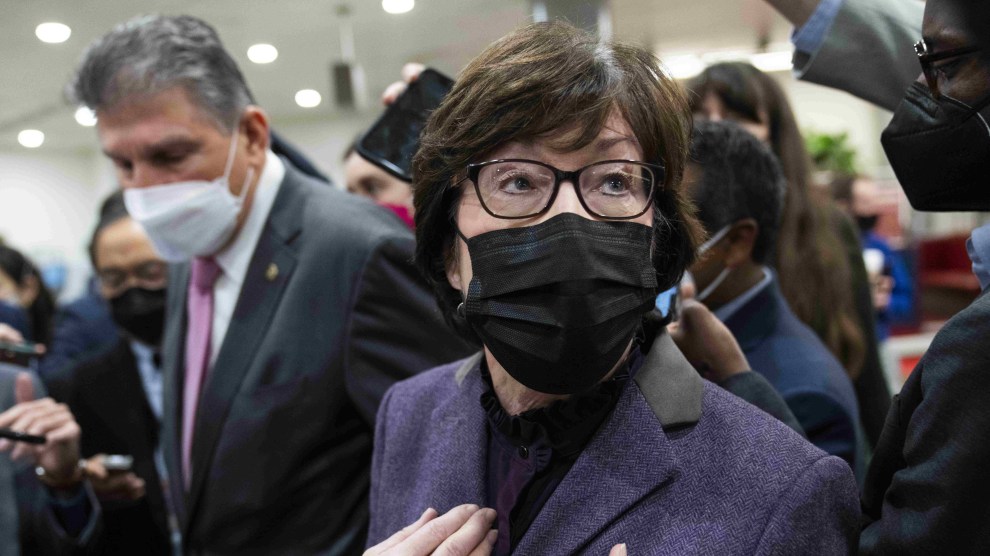
Judge Ketanji Brown Jackson, President Biden's nominee for Associate Justice to the Supreme Court, meets with Sen. Susan Collins, R-Maine, in her office on Tuesday, March 8, 2022.Bill Clark/CQ Roll Call/ZUMA
Sen. Susan Collins (R-Maine) announced today that she’ll vote to confirm Ketanji Brown Jackson as a Supreme Court justice, becoming the first Republican to do so and securing a victory for Joe Biden, who can now brag that his court pick garnered support from across the aisle.
Collins’s statement, along with a similar commitment from Sen. Joe Manchin, all but guarantees that Jackson will ascend to the court and likely means that Vice President Kamala Harris will not have to cast a tie-breaking vote.
The Democrats have been trying to get a Republican in their corner to create the appearance of a bipartisan confirmation for awhile, with a particular eye to Collins and her fellow moderates Lisa Murkowski and Mitt Romney. Along with Lindsay Graham (now a probable no-vote), Murkowski and Collins were the only Republicans to support Jackson’s appointment to the appeals court, and Romney has signaled that he’ll keep an open mind about her nomination.
In an interview with the New York Times explaining her decision, Collins bemoaned the way that the confirmation process has become politicized.
“In my view, the role under the Constitution assigned to the Senate is to look at the credentials, experience and qualifications of the nominee,” she said. “It is not to assess whether a nominee reflects the individual ideology of a senator or would vote exactly as an individual senator would want.”
The statement was in line with Collins’ broader efforts to cast herself as one of the “reasonable” conservatives. Over her quarter-century tenure in the Senate, she has tried to cultivate a brand as a Republican moderate coasting above petty partisan divides and willing to buck her party’s consensus. On certain issues, she has, in fact, gone against the GOP grain—voting to convict Donald Trump following his second impeachment, pushing for a doomed independent commission to investigate the January 6 Capitol riot, and opposing the confirmation of Amy Coney Barrett. But in 2018, she traumatized Democrats by casting a crucial vote in support of Justice Brett Kavanaugh (albeit only after a great deal of handwringing to let everybody know that it was a tough decision). At the time, Collins, rather credulously, scoffed at warnings that Kavanaugh would help roll back reproductive rights, a possibility that now seems quite likely.
















